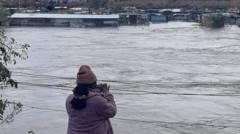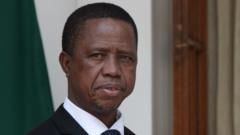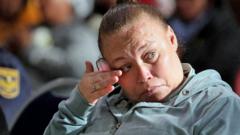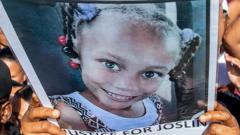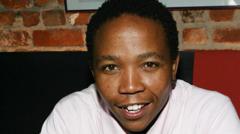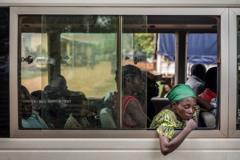South Africa finds itself at a critical juncture as the coalition government, comprised of the African National Congress (ANC) and the Democratic Alliance (DA), teeters on the brink of dissolution following a contentious budget vote.
### South Africa's Coalition Government Faces a Crucial Challenge

### South Africa's Coalition Government Faces a Crucial Challenge
With rising tensions between ANC and DA, will the national budget vote lead to the collapse of the coalition?
Amid a crucial parliamentary vote on the national budget, the coalition's fractures were exposed when the DA, a centre-right party, opposed the fiscal framework, advocating against a VAT increase and calling for spending cuts across government departments. The ANC, positioning itself as centre-left, rebuffed the DA's calls for austerity, rallying support from smaller parties to prevail in the vote by 194 to 182.
The DA has since initiated court proceedings, claiming the vote was "procedurally flawed," as it contemplates its ongoing role within the Government of National Unity (GNU). Professor William Gumede, from Wits University, stated that it remains uncertain if the DA will exit the coalition, suggesting the decision might hinge on the court's outcome.
This coalition was established less than a year ago when the ANC lost its parliamentary majority during elections, marking a pivotal moment in South Africa's democratic journey. Economic stakeholders had urged this partnership, hoping it would foster economic stability.
As tensions escalated, DA spokesman Willie Aucamp accused the ANC of severe violations, while party chair Helen Zille hinted at the need for an evaluation of their coalition role, underscoring that power-sharing must be mutually beneficial. Meanwhile, the ANC condemned the DA's actions as a "complete betrayal," asserting that their coalition partners remain committed.
The voting alliance of the DA with traditional opponents, including the Economic Freedom Fighters (EFF) and parties backing key economic nationalizations, further complicates the situation. Despite their political differences, these factions united against a VAT increase, citing concerns over its impact on the poor.
While the ANC justified the VAT increase as essential to improving public services, the opposition highlighted the growing public discontent regarding high taxes amid deteriorating services. The involvement of the Inkatha Freedom Party (IFP) and ActionSA, which cut ties with the DA, raised concerns about the lasting stability of the coalition.
Yet, the dispute over the budget is one among several ongoing legislative challenges the DA has initiated against the ANC, including the contentious land expropriation act.
Facing further pressure from international trade policies, such as punitive tariffs imposed by the Trump administration, the imperative for cooperation among South African political entities is more urgent than ever. As unemployment hovers over 30%, failure to reconcile these differences could lead to dire economic consequences for the nation as a whole.
The DA has since initiated court proceedings, claiming the vote was "procedurally flawed," as it contemplates its ongoing role within the Government of National Unity (GNU). Professor William Gumede, from Wits University, stated that it remains uncertain if the DA will exit the coalition, suggesting the decision might hinge on the court's outcome.
This coalition was established less than a year ago when the ANC lost its parliamentary majority during elections, marking a pivotal moment in South Africa's democratic journey. Economic stakeholders had urged this partnership, hoping it would foster economic stability.
As tensions escalated, DA spokesman Willie Aucamp accused the ANC of severe violations, while party chair Helen Zille hinted at the need for an evaluation of their coalition role, underscoring that power-sharing must be mutually beneficial. Meanwhile, the ANC condemned the DA's actions as a "complete betrayal," asserting that their coalition partners remain committed.
The voting alliance of the DA with traditional opponents, including the Economic Freedom Fighters (EFF) and parties backing key economic nationalizations, further complicates the situation. Despite their political differences, these factions united against a VAT increase, citing concerns over its impact on the poor.
While the ANC justified the VAT increase as essential to improving public services, the opposition highlighted the growing public discontent regarding high taxes amid deteriorating services. The involvement of the Inkatha Freedom Party (IFP) and ActionSA, which cut ties with the DA, raised concerns about the lasting stability of the coalition.
Yet, the dispute over the budget is one among several ongoing legislative challenges the DA has initiated against the ANC, including the contentious land expropriation act.
Facing further pressure from international trade policies, such as punitive tariffs imposed by the Trump administration, the imperative for cooperation among South African political entities is more urgent than ever. As unemployment hovers over 30%, failure to reconcile these differences could lead to dire economic consequences for the nation as a whole.





